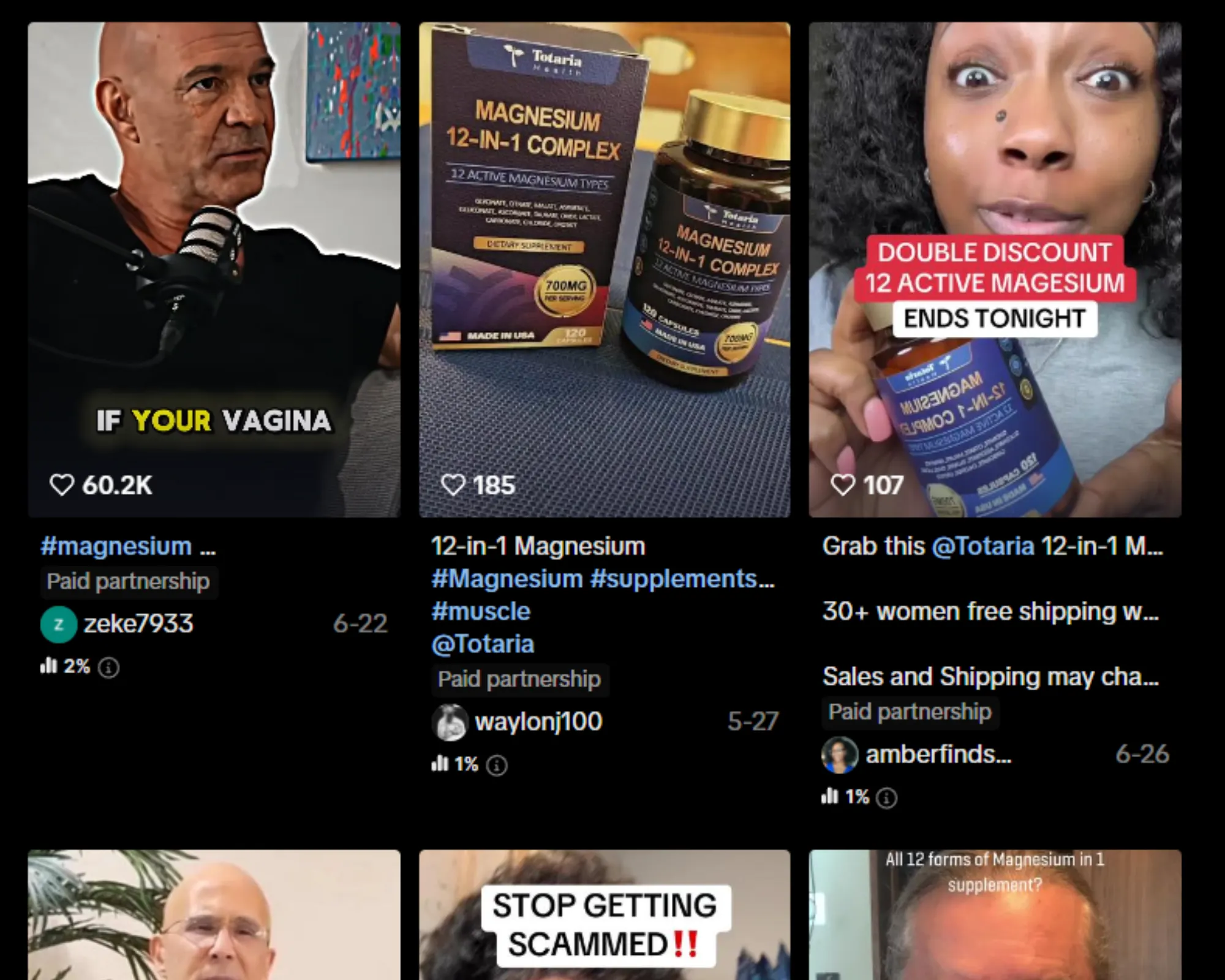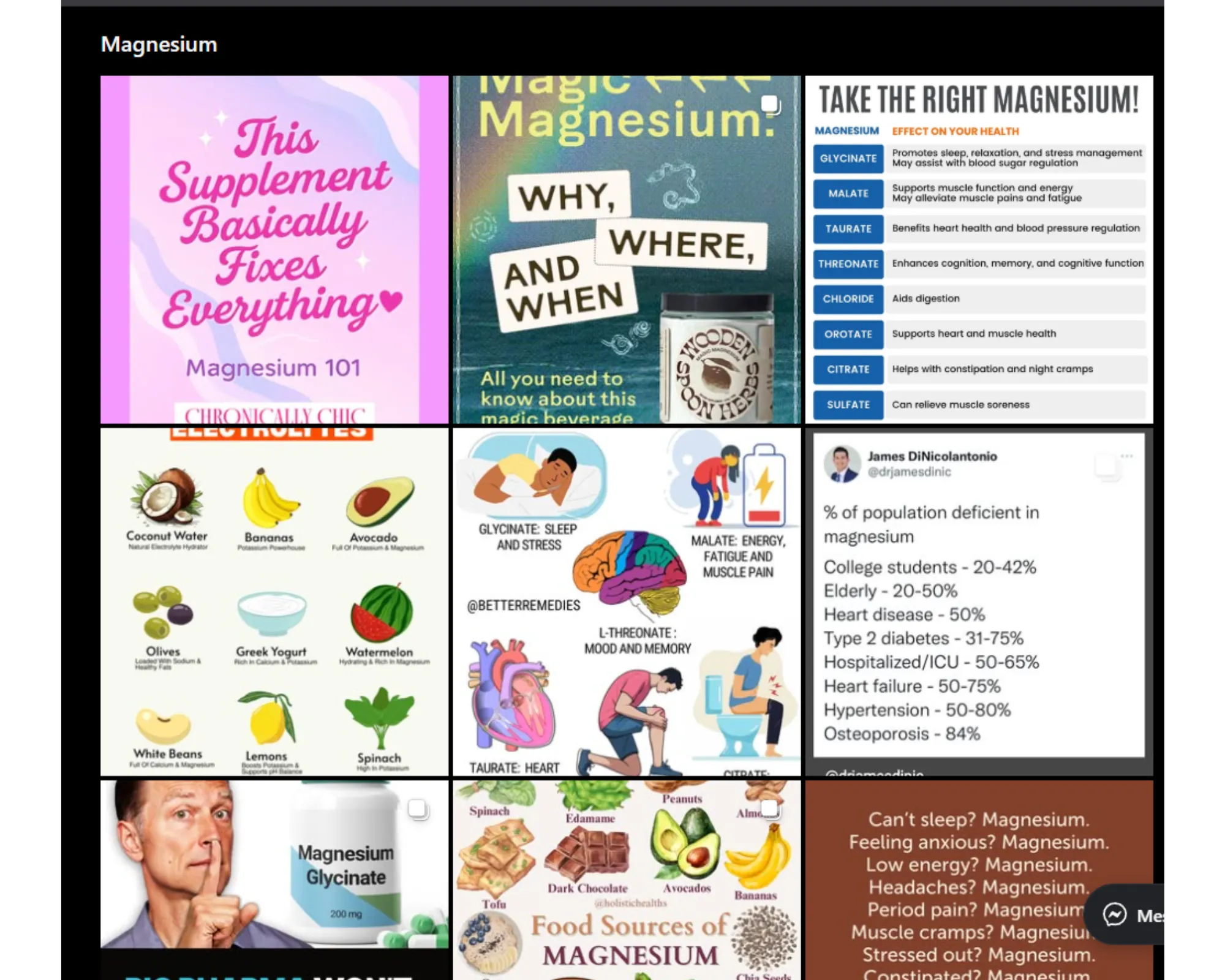AI Avatars Are Peddling Dangerous Mega-Dose Magnesium—Here’s Why Doctors Are Sounding the Alarm
Silicon Valley’s latest health craze has AI-generated influencers pushing magnesium supplements at doses that could land you in the ER. Doctors aren’t amused.
The Hype Machine Goes Full Snake Oil
Polished digital faces—backed by who-knows-what shadowy supplement conglomerates—are flooding feeds with claims that mega-dosing magnesium cures everything from anxiety to crypto-induced insomnia. Actual MDs? They’re seeing seizures and cardiac issues in clinics.
Why This Isn’t Just Another Wellness Fad
Unlike your garden-variety vitamin scam, these AI pushers bypass FDA oversight by operating through offshore shell companies (probably incorporated between NFT drops). The math is simple: unregulated content + vulnerable audiences = 2025’s most dystopian revenue stream.
The Bottom Line
Next time a glowing avatar insists you need 1000% daily magnesium, remember: real medicine doesn’t require blockchain-level whitepapers. Your kidneys—and your portfolio—will thank you for skipping this 'wellness' moonshot.
 Image: Magnesium ads on TikTok
Image: Magnesium ads on TikTok
Too much magnesium can be especially harmful, especially for people with heart, digestive, or kidney problems.
Common side effects of magnesium supplements include diarrhea, nausea, stomach cramps, flushing, headaches, and muscle weakness. However, in people with kidney problems–who can’t excrete excess magnesium efficiently—the mineral can build up to dangerous levels, causing low blood pressure, trouble urinating, confusion, difficulty breathing, an irregular or slow heartbeat, and even cardiac arrest.
Aiming to give their ads more legitimacy, some use AI to make medical experts appear to make positive claims about magnesium supplements, a practice that Chen called “dangerous and unethical.”
“Everyone wants simple and quick,” he said. “But when it comes to serious health needs, there's no quick fix for good sleep, exercise, and good nutrition.”

The search for a longevity quick fix has led to a boom in the supplement industry. In 2024, the dietary supplement market was worth $189 billion. According to market research firm Precedence Research, by 2035, that number is expected to reach $402 billion.
When asked about advertisements featuring AI-generated medical testimonials and questionable health claims, the social media platforms offered limited explanations of their policies. A YouTube spokesperson pointed to its medical misinformation guidelines, which prohibit content that contradicts local health authority guidance, such as promoting harmful alternative treatments or discouraging professional medical care.
A representative for Meta also declined to comment directly on the ads, but pointed to their advertising policies, which prohibit deceptive or misleading health claims, promotion of unsafe supplements, exaggerated health-related promises, and advertisements featuring negative self-perception tactics or unauthorized uses of medical professionals' likenesses.
TikTok did not respond to Decrypt’s request for comment.
“People love these platforms for freedom of speech and the ability to say whatever they want,” Chen said. “But we need a commitment to patient safety, making sure people don’t pursue something that’s not only unhelpful, but might cause them to ignore a serious condition. If they delay seeking help, it could be too late.”
According to Dr. Zhaoping Li, director of the UCLA Center for Human Nutrition, while magnesium is now commonly promoted for sleep and muscle support, its broader use stems from a more specific medical application.
“For women with preeclampsia, it was used to relax uterine muscles during contractions and prevent premature birth,” Li told Decrypt. “From there, people began using it more broadly for muscle relaxation. While not extensively studied, small studies suggest benefits for restless leg syndrome and for relaxing muscles before bed.”
Magnesium deficiency is common in people with poor diets or chronic alcohol use, Li explained, which is why it’s often replenished in clinical settings.
“If you came to the emergency room, they WOULD have given you key nutrients—magnesium is one of them,” she said. “Based on that background, people now more freely recommend it for various health benefits, but the real benefit depends on what you use it for.”
Chen and Li both said that certain forms of magnesium are better absorbed and may be useful in specific cases. But products labeled as “complexes” with a dozen types are largely marketing.
“If we really were doing it for everyone’s benefit, I would recommend taking more natural food with high magnesium,” Li said. “The benefit is much, much more than taking a whole bunch of pills.”
Li argues that the real promise of AI in health lies not in marketing supplements, but in understanding food.
“If we really want to use AI, we need to study food altogether,” she said. “Not isolate one mineral and throw it into a capsule.”

